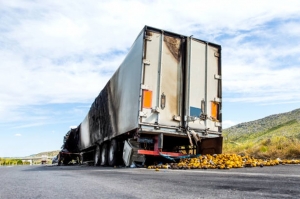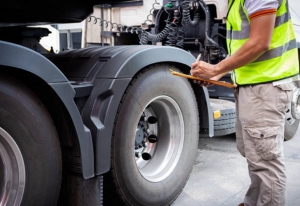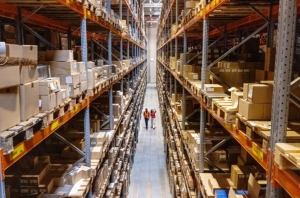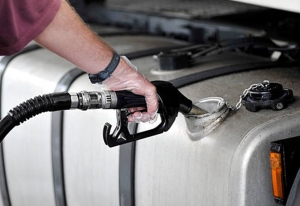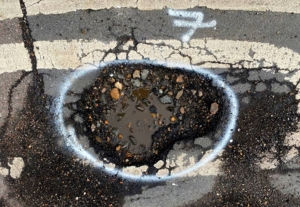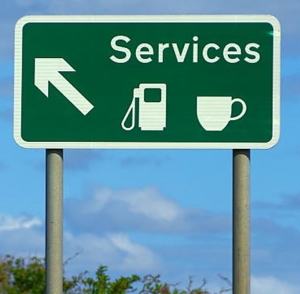Freight Crime Report Urges Action to Protect UK Supply Chains
The All-Party Parliamentary Group (APPG) on Freight and Logistics has launched its latest report, Securing Our Supply Chains: How the Government Can Crack Down on Freight Crime. Published on 19 November, the report highlights the growing issue of freight crime, which poses a significant threat to the UK’s supply chains. Logistics UK participated in the event, which provided a roadmap for tackling this serious problem.
Freight crime in 2023 resulted in £68.3 million in stolen goods' wholesale value, with the true cost estimated at £680-£700 million. Organised criminal groups exploit weaknesses in current laws, treating theft from lorries as low-risk, high-reward offences. Beyond the direct losses, these crimes impact the wider economy, damaging the viability of logistics companies, hampering staff retention, and discouraging investment. The report’s launch included presentations from MPs, police representatives, and other stakeholders, focusing on preventative strategies.
In response, the MAC shared its top five tips to protect vehicles and cargo. Drivers and operators are advised to park in secure locations with barriers, 24-hour surveillance, and proper lighting. If secure facilities are unavailable, vehicles should be parked in well-lit areas with frequent activity and, ideally, CCTV. Route planning should also vary to prevent organised gangs from tracking vehicles.
Drivers and logistics staff are urged to remain vigilant, reporting suspicious activity such as vehicles following them or loitering near loading sites. Coordination between drivers, loading staff, and traffic offices is crucial for reducing risks and protecting supply chains from further disruption.
Star Safety Ratings for Lorries Aim to Reduce Fatal Crashes
For the first time, lorries are being rated for safety, with the safest and least safe heavy goods vehicles named under a new star system. The ratings, ranging from five stars for the safest to one star for the least safe, aim to improve lorry safety standards in a manner similar to how car safety has progressed since 1997.
The new initiative, led by EuroNCAP, highlights the lack of safety features in many lorries compared to modern cars. Features like autonomous emergency braking (AEB), lane-keeping assistance, and collision avoidance systems for cyclists and pedestrians are often absent. These systems could prevent tragic accidents, such as the fatal crash on the A34 involving a distracted lorry driver, or the collision that claimed the life of 8-year-old Dev Naran on the M6.
Matthew Avery, EuroNCAP’s director of strategy, emphasised the urgency of addressing lorry safety. Despite representing only 3% of road vehicles, lorries are involved in 15% of fatal accidents. He also pointed out that many lorries lack basic safety measures, such as seat belt reminders, which are standard in modern cars. Tests of six heavy goods vehicle brands revealed a wide disparity, with Volvo earning five stars and a 2024 Iveco model receiving just one.
Campaigners like Meera Naran, whose son was killed in a lorry crash, have welcomed the scheme as a milestone for road safety. They urge manufacturers to prioritise safety, not only for lorry drivers but also for vulnerable road users, such as cyclists and pedestrians.
Specific Medications Could Lead to Licence Revocation for Drivers
The DVLA may revoke driving licences for motorists taking certain medications, including strong painkillers, some antidepressants, and tranquillisers. Greg Wilson, CEO of insurance comparison service Quotezone, has highlighted the risks associated with these medications, which can impair driving ability by causing side effects such as drowsiness, dizziness, or blurred vision.
Wilson explained that medications such as opioid painkillers and certain antidepressants are likely to come with warnings against driving, particularly if they cause drowsiness or have labels advising users not to operate heavy machinery. The NHS also cautions that some antidepressants can affect coordination and alertness, especially during the initial stages of treatment. Drivers experiencing these side effects are advised to avoid driving and consult their doctor.
The DVLA states that drivers must inform them if any medical condition or medication affects their ability to drive safely. Failing to do so could result in a fine of up to £1,000, or even prosecution if an accident occurs as a result. Those unsure about how their condition or treatment might impact their driving are encouraged to seek advice from a medical professional.
Drivers must complete the DVLA’s M1 questionnaire if their condition could impair their driving ability. The DVLA may consult with healthcare professionals or require further assessments before making a decision. In most cases, individuals can continue driving while their application is under review, though stricter rules apply for bus or lorry licences.
Black Friday Shipping Costs Threaten UK Supply Chain Profits
Surge pricing on shipping during Black Friday could significantly impact the profits of UK warehousing and logistics firms. Recent data shows that nearly a third of supply chain businesses experienced rising carrier costs in November last year, with some reporting increases of up to 25% during Black Friday Week. These costs rose from an average of £3.50 to £4.37 per item, driven by peak season surcharges imposed by carriers from mid-November to early January.
The rising costs, coupled with consumer expectations for free or low-cost shipping, are forcing retailers and fulfilment companies to absorb the increases, squeezing their margins. Industry leaders are calling for greater collaboration with carriers to manage price pressures sustainably. Some logistics providers negotiate early to mitigate surcharges and ensure smooth operations during the busiest e-commerce period.
In addition to rising costs, seasonal staffing shortages and operational challenges are major concerns for supply chain firms. Over 90% rely on temporary staff to manage increased demand, but 18% report difficulties filling positions. Despite this, order volumes are expected to rise again this year, following a 17% increase in 2023. Efficient stock and order management remain top priorities, with many firms turning to technology to streamline processes and reduce errors.
Experts urge businesses to invest in automation and technology to handle peak season surges. By integrating order processing, inventory management, and dispatch systems, firms can improve efficiency and manage rising demands while reducing reliance on manual labour. Early preparation and robust tech solutions are vital to meeting consumer expectations and navigating the challenges of peak trading periods.
Logistics Insolvencies Surge 14% Amid Falling Demand and Rising Costs
Insolvencies among logistics companies have risen by 14% in the past year, increasing from 464 in 2022/23 to 530 in 2023/24, according to research by Forvis Mazars. Many of these businesses were established during the pandemic to meet the surge in demand for home deliveries. However, as demand has fallen back to pre-pandemic levels, many smaller operators are now struggling to remain viable.
During the pandemic, online sales accounted for 34% of all retail sales in May 2020 but have since dropped to 28% by July 2024. This decline, coupled with the resurgence of high street shopping, has reduced the need for logistics services, which are closely linked to e-commerce growth. Some online retailers have also introduced fees for returning goods, prompting consumers to cut back on bulk ordering and returns, further dampening delivery volumes.
Consumer spending has declined since the pandemic, partly due to high interest rates reducing disposable income. Retail sales volume indices have dropped from 105 in July 2020 to 99 in July 2024. Rising costs, including wage inflation and vehicle leasing expenses, are adding to the challenges faced by logistics companies, particularly smaller operators.
Rebecca Dacre, Partner at Forvis Mazars, noted that smaller logistics firms are finding it increasingly hard to compete with larger players. She highlighted that falling demand, economic pressures, and the need for significant investment in electric vehicles are creating a challenging environment for many in the sector. With these factors at play, the future remains uncertain for smaller logistics businesses.
Hauliers Demand Government Action as Fuel Prices Threaten Survival
Hauliers are calling on the Government to intervene as record diesel prices threaten to erode their profits completely. The average cost of diesel has soared to £1.56 per litre, driven by surging oil prices following Russia's invasion of Ukraine, leaving many in the logistics sector struggling to stay afloat.
The Road Haulage Association (RHA) has urged ministers to delay changes to the use of untaxed red diesel by a year to ease the pressure on the industry. It is also calling for a two-year freeze on fuel duty and more flexibility with the Apprenticeship Levy to help tackle driver shortages. The association argues these measures are essential to prevent further damage to the sector.
Rod McKenzie, RHA’s executive director for policy and public affairs, highlighted the dire situation, noting that the haulage industry operates on thin margins, with average annual profits of just 3%. He explained that rising fuel costs, amounting to an additional £77 to £87 per week per truck, are effectively erasing these slim profits. “This leaves many businesses on the brink, with no choice but to pass on costs, adding to inflationary pressures for everyone,” he said.
McKenzie warned that without government action, some hauliers may not survive, exacerbating inflation and increasing costs for UK consumers. He urged the Government to act swiftly to support the industry and mitigate wider economic impacts.
UK's Growing Pothole Crisis Spurs £500M Road Repair Boost
The UK’s pothole problem is worsening, with damaged roads causing significant issues for drivers, cyclists, and communities across the country. Recent figures reveal that potholes have contributed to over half a million vehicle breakdowns in 2024 alone. Estimates suggest there are now over 1.3 million potholes on UK roads, equating to roughly six potholes per mile of local road. This widespread damage leads to high repair costs for motorists and poses serious safety risks, highlighting the urgent need for sustainable solutions.
In response, the Chancellor has pledged an additional £500 million for road maintenance in 2025, aiming to repair an extra one million potholes annually. While the investment is a welcome boost for local councils and communities dealing with deteriorating road conditions, industry experts estimate that fully addressing the problem would require a substantial £16.3 billion over the next decade. This funding increase, though helpful, offers only temporary relief to a deeply rooted issue requiring a long-term investment strategy.
Potholes form when the top layer of road material breaks down, often due to traffic pressure, weathering, and moisture. Heavy vehicles such as trucks and buses contribute to this deterioration, which is why UK roads, bearing immense traffic loads, are particularly vulnerable to potholes. These defects range in size and depth, posing risks not only to vehicles but also to pedestrians and cyclists.
Despite ongoing repair efforts, the frequency of pothole reappearance underscores broader infrastructure challenges in the UK. The rising number of potholes is a sign of underinvestment in road maintenance, and while recent funding is a step forward, the problem remains widespread. For now, motorists, cyclists, and pedestrians are urged to remain vigilant for these hazards on the roads.
Welcome Break Enhances HGV Parks with Major Investment in Driver Facilities
Motorway service provider Welcome Break has announced a substantial investment aimed at enhancing facilities across its HGV parks nationwide. A combined £1.7 million from Welcome Break and matched funding from National Highways is being utilised to upgrade facilities at various UK sites, providing modern amenities and improved security measures.
The improvements include new shower blocks, 3-metre-high palisade security fencing, LED floodlighting for better visibility, and advanced PTZ and Infrared Bi-Optic CCTV systems with remote monitoring capabilities. Additionally, outdoor gyms are planned for five locations, set to open in early 2025, giving HGV drivers the chance to stay active during breaks. This initiative, supported by National Highways, reflects a commitment to promoting drivers' health and wellbeing.
Nick Jackson, Head of Commercial Income at Welcome Break, expressed gratitude for the National Highways funding, noting that the upgrades have created safer and more comfortable environments for HGV drivers. He highlighted that the enhancements in amenities, security, and the addition of outdoor gyms have positively impacted driver satisfaction and wellbeing.
This collaboration between Welcome Break and National Highways stems from the government's Designated Funds Project, introduced in 2022. The project allocated £20 million in matched funding to improve infrastructure and support the HGV sector, marking an important step in enhancing the daily experience and safety for HGV drivers across the UK.


